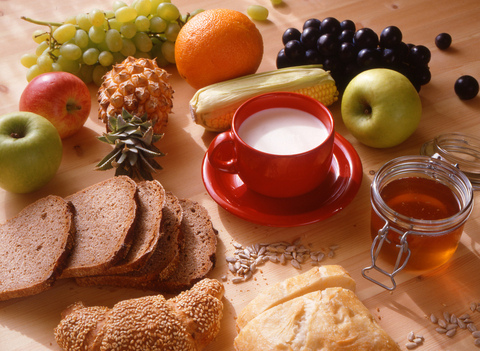March 8th, 2023

Congratulations! Your child is beginning to leave her bottle behind and has started to use her first sippy cup. And the best training cup is one that makes the transition from bottle to cup an efficient, timely, and healthy one.
The Right Training Cup
While a “no spill” cup seems like the perfect choice for toddler and parent alike, those cups are designed much like baby bottles. The same valve in the no-spill top that keeps the liquid from spilling requires your child to suck rather than sip to get a drink. If your child’s cup has a top with a spout, she will learn to sip from it. Two handles and a weighted base make spills less likely.
When to Use a Training Cup
Children can be introduced to a sippy cup before they are one year old, and we suggest phasing out the bottle between the ages of 12 and 24 months. Use a sippy cup as the source for all liquids at that age, and only when your child is thirsty and at mealtime to avoid overdrinking. The transition from sippy cup to regular cup should be a swift one.
Healthy Sipping Habits
The best first option in a sippy cup between meals is water. Milk or juice should be offered at mealtimes, when saliva production increases and helps neutralize the effects of these drinks on young teeth. And don’t let your child go to sleep with anything other than water—falling asleep with a cup filled with milk, juice, or other sugary drinks means these liquids stay in the mouth overnight. Finally, while a sippy cup is convenient and portable, don’t let your young child walk and sip at the same time to avoid injuries.
When your child comes to our Winter Park office for her first visit, please bring any questions you might have about training cups. We would be glad to share ways to make the move from bottle to cup both successful and safe!
March 1st, 2023

While you don’t have to wait to start eating right, March is the month the Academy of Nutrition and Dietetics asks everyone to pay special attention to what goes into our bodies. The Academy has designated the month of March for focusing the public’s awareness on what they eat.
What Not to Eat
The academy points out that the foods you eat have a direct effect on the health of your teeth and specifically on tooth decay. Bacteria rely on carbohydrates to thrive. That is why Dr. Alvarez and our team at Winter Park Pediatric Dentistry tell our patients to cut back on both candy and sweets. They consist of simple sugars that feed the bacteria in your mouth and enhance tooth decay.
It’s the hidden sugars that will cost you, though. Get in the habit of reading labels on food and looking for products with added sugar. This includes ingredients that end with the suffix “ose.” When it comes to nutrition, these foods offer little value beyond satisfying that sweet tooth.
What You Should Eat
Turn to foods that not only taste good but are good for your teeth too. Dairy products, for example, provide the body with nutritional items that support tooth enamel. Foods high in protein feature phosphorus, a nutrient critical to oral health.
You can’t really go wrong by adding color to your diet, either. Fruits and vegetables make for a colorful plate and a healthy meal. Use some caution with acidic fruits like oranges or even tomatoes, because the acid can erode tooth enamel. It is better to include these foods in a meal instead of eating them by themselves.
Remember, good nutrition is something you should worry about all year long, not just when celebrating National Nutrition Month. March just serves as a fun reminder that eating right is a proactive step in managing your dental health.
We encourage you to give us a call at our Winter Park office to learn more!
February 22nd, 2023

The primary teeth are the initial teeth that erupt from a child’s gums in the first few years of childhood. There are a total of 20 primary teeth, most of which will have appeared no later than age three. Because they are only temporary, some parents believe they are less important than the permanent teeth that will emerge around age five or six. However, primary teeth hold a special significance and are important for a child’s long-term oral health.
Function and importance of baby teeth
Baby teeth have several basic functions. Decay can interfere with these functions, and potentially lead to life-long complications. For example, severe tooth decay that causes tooth loss during childhood, perhaps due to sleeping with a bottle at night, can obstruct a child’s speech development. It can also hinder his or her ability to sufficiently chew food.
The primary teeth also serve as place-holders for the permanent teeth. When a primary tooth falls out or must be removed before its time, surrounding teeth may shift into the space the tooth once held. This can cause orthodontic complications once the permanent teeth begin to erupt, which can lead to serious tooth alignment problems and call for extensive orthodontic treatment.
Caring for baby teeth
Dr. Alvarez and our team at Winter Park Pediatric Dentistry will tell you it is never too early to begin caring for your child’s teeth. Baby teeth require the same care and attention that permanent teeth do. The American Dental Association recommends that children see a dentist as soon as the teeth begin to erupt from the gums. Early childhood dental visits usually include examinations, cleanings, fluoride treatments, and hygiene education for parents. It is also important to adopt an oral care routine at home that includes daily brushing, flossing, and dietary modifications that support a lifetime of good oral health.
To learn more about baby teeh, or to schedule an appointment with Dr. Alvarez for your little one, please give us a call at our convenient Winter Park office!
February 15th, 2023

According to the American Academy of Pediatric Dentistry, checkups at Winter Park Pediatric Dentistry are recommended for all children two times a year. Children should be evaluated for cavities and other emerging dental issues every six months, because these problems can lead to more serious dental problems and health issues if left untreated.
While it is always good to follow the official guideline mentioned above, it is also important to understand that each child is unique and his or her dental needs are equally unique. If your child shows signs of dental or orthodontic problems, Dr. Alvarez might recommend more frequent visits.
One way to help your son or daughter maintain good oral health between pediatric dental visits is to monitor brushing and oral care habits, especially if the child is still very young. Children who are two to five years of age will usually still require at least some degree of monitoring during their dental care routine.
The Checkup Visit
During your child’s regular dental care checkups, Dr. Alvarez will evaluate the current state of oral health and will be able to recognize any issues. The twice-yearly checkup visits are typically the time at which problems like cavities, irregular growth patterns of the teeth, and oral decay are discovered. Thus, making these appointments for your child, and following through with them, is extremely important.
Learning and Maintaining Good Oral Health
Dr. Alvarez and our Winter Park staff are your partners in terms of your child’s health care. Even when your child is an infant and a toddler, good brushing and other oral care habits can be taught. We will help you to educate your child about how to care for teeth in the most effective way, and you can carry those lessons home and help your child to follow them for the ultimate in oral health.





 Website Powered by Sesame 24-7™
Website Powered by Sesame 24-7™